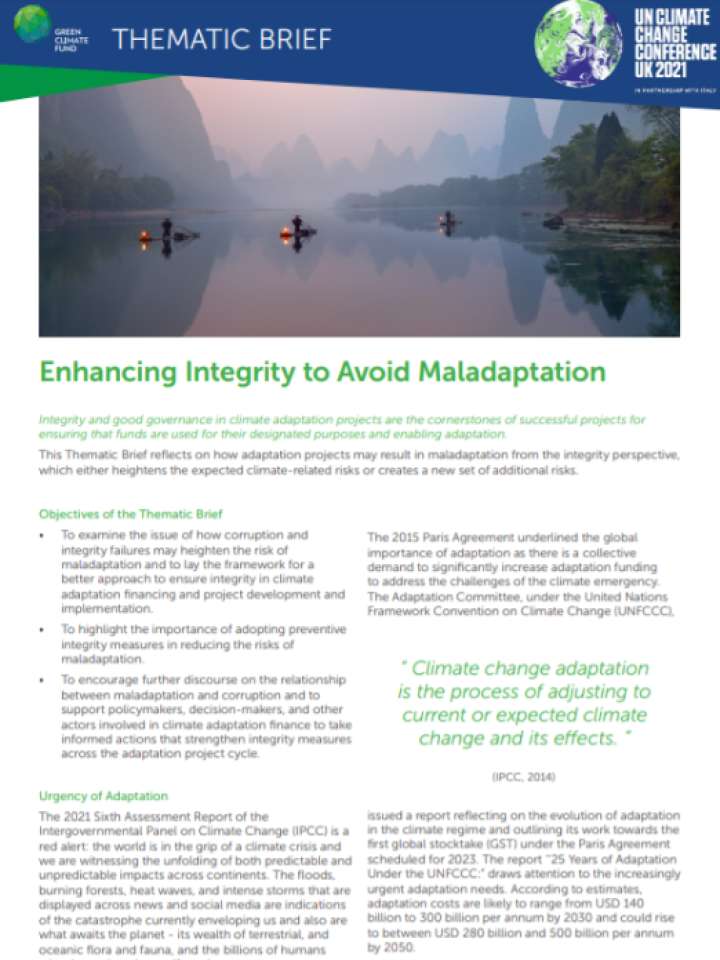Adapting well: Enhancing integrity to avoid maladaptation
In this timely policy brief, the Green Climate Fund (GCF) and Water Integrity Network (WIN), with key partners, examine the linkages between maladaptation and failures in corruption and integrity. This nexus stems from power imbalances that exist in both development and climate adaptation, which can exclude the most vulnerable groups from decision making processes. Powerful lobbies, corruption and political agendas can lead to maladaptation by influencing key players, and keeping potential benefits away from those who need it most. As seen in the Ethiopian case study, adaptation projects can also be maladaptive when they alienate people from traditional ways of life, something made much more likely when local voices are not heard.
This brief presents six key recommendations, including advocating for more research across key adaptation sectors, encouraging collective action at the global, national, and local level, developing integrity tools, knowledge products, and anti-corruption strategies to increase transparency, and implementing a ‘zero-tolerance’ culture among executing agencies. Raising awareness and building capacity and integrity at each step of the local, national, and global level is important, given the inherently top-down nature of climate finance. After only 20% of the climate finance mobilised in 2017 was allocated to adaptation, and promising pledges at COP26 last month indicating this will increase, ensuring adaptation benefits all, and harms none, is more important than ever.
Explore further
